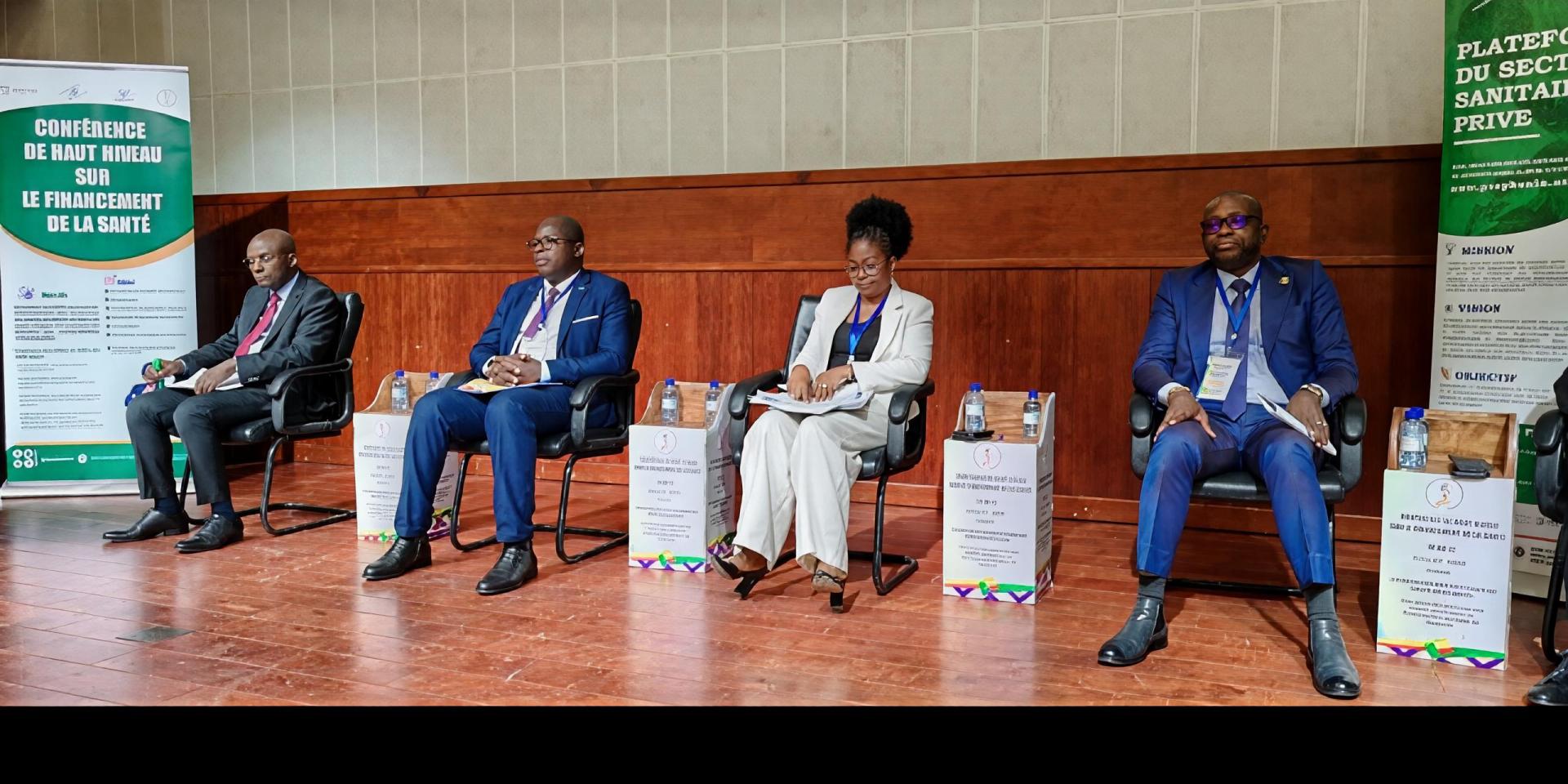The Cotonou Declaration charts a new roadmap for sustainable health financing in Benin
The Beninese capital hosted a pivotal moment for the future of health financing. At the end of two days of intensive discussions held from 10 to 11 July 2025 at the Palais des Congrès, public authorities, the private sector, technical and financial partners adopted the Cotonou Declaration, an ambitious roadmap designed to sustainably transform the financing of the health system in Benin and across the sub-region.
Organized by the Benin Private Health Sector Platform (PSSP), in collaboration with the Ministry of Health, WHO, PSI Benin, WAHO, Speak Up Africa and several partners, this first high-level conference on health financing in West Africa aimed to build consensus around a more resilient, more equitable model that is less dependent on out-of-pocket payments by households.

In his address, the WHO Representative, Dr Kouamé Jean Konan, highlighted the urgency of structural reform. “Today, 44% of health expenditures in Africa are still borne directly by households. This situation endangers equity and universal access to care,” he recalled, stressing that the region cannot rely on “minor adjustments” but must undertake “a profound transformation of financing models.”
The WHO Representative also emphasized the need to operationalize public-private partnerships (PPPs). “PPPs are not an alternative; they are a strategic lever. In Benin, the private sector already accounts for nearly half of service delivery and about 60% of total health financing. It is now an essential partner,” he stated.
For his part, Dr Emery Nkurunziza, PSI Resident Representative, underlined the importance of digitalization, interoperability of information systems and group medical practice, innovations capable of strengthening transparency, quality and efficiency in health financing.
According to the PSSP President, Dr Latif Mousse, the conference represents “a foundational milestone” in recognizing the strategic role of the private health sector. He called for the construction of a more coherent system, supported by a strengthened legal framework and aligned with the ambitions of the National Health Development Plan 2018–2030.
Speaking on behalf of the Minister of Health at the closing session, Dr Lamidhi Salami stressed that the commitments made go beyond mobilizing financial resources. “This is about building an essential pillar to achieve Universal Health Coverage,” he said, adding that the ministry will actively lead the implementation of the Cotonou Declaration.
The adopted text recommends accelerating legal reforms including the implementing decrees of the General Public-Private Partnership Law — strengthening private sector capacities, promoting innovations such as telemedicine and blended financing mechanisms, and improving territorial equity in resource allocation.
“This conference must not only bring ideas together. It must produce concrete proposals to guide government action,” insisted Dr Konan, reaffirming “WHO’s full commitment to supporting Benin in the transformations required for sustainable health financing.”
With the Cotonou Declaration, a new course has been set. The challenge now lies in translating this collective commitment into concrete measures capable of sustainably improving access to care for women, children and the most vulnerable populations.
